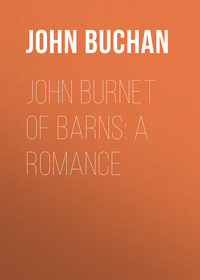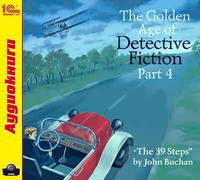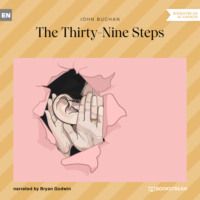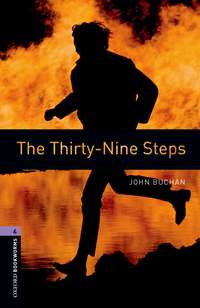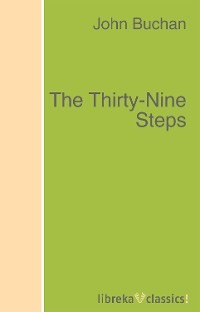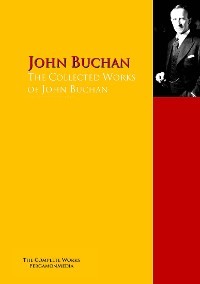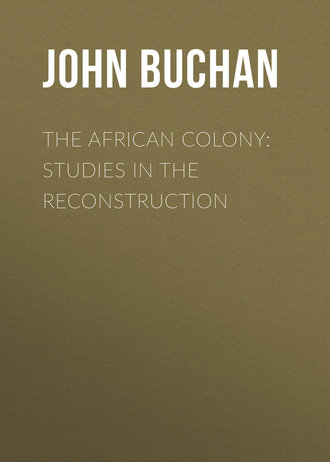 полная версия
полная версияThe African Colony: Studies in the Reconstruction
Other sports were scarcely considered. He rarely fished, leaving the catching of yellow-fish, tiger-fish, and barbel to the Kaffirs; and when he did, his rod and tackle were neolithic in their simplicity. I have never seen a Boer rod which had any of the proper attributes of a rod, and he used to profess scorn for a man with a greenheart or a split-cane as for one who would stipulate for an elegant spade before digging potatoes. Sometimes in a village or among neighbouring farmers flat-races would be got up; but the Boer pony was bred more for endurance than for speed, and a small selling-plate meeting was about the limit of his horse-racing. I have never seen or heard of a Boer steeplechase. On the other hand, he had a wonderful skill, as our army discovered, in riding at full speed over a breakneck country, – a skill due, perhaps, more to veld-craft than to horsemanship. Hunting big game on horseback taught him, as part of the business, to leave much to his horse; and his horse rarely played him false. Whether he was clattering down a stony hillside, or dodging through thick scrub, or racing over veld honeycombed with ant-bear holes, he rode with a loose rein and full confidence in his animal. It is difficult to frame an opinion on his horsemanship. His long stirrups, the easy “tripple” of his horse, and his loose seat make him a type of horseman very different to our cavalryman or Leicestershire master of hounds. But, loose as he sits, he can stick on over most kinds of country, and he is a natural horsemaster of the first order. A Boer knows by instinct how to manage his horse: he never frets him; he rarely ill-treats him; and he can judge to a mile the limits of his endurance.
As a sportsman, then, the Boer is scarcely at his best. He has shown himself dull, sluggish, unimaginative, capable of both skill and endurance, but a niggard in the exercise of either, unless compelled by hunger or hope of gain. Unlike most races, it is in his sports that he shows his most unlovely traits, and that flat incomprehensible side of his character which has puzzled an ornamental world. The truth is that he is, speaking broadly, without imagination and that dash of adventure which belongs to all imaginative men. The noble spurs of the Drakensberg rose within sight of his home; but he would as soon have thought of climbing a peak for the sport or the scenery as of dabbling in water-colours. A dawn was to him only the beginning of the day, a mellow veld sunset merely a sign to outspan; and I should be afraid to guess his thoughts on a primrose by the river’s brim, or whatever is the South African equivalent. His religion made him credulous, but his temperament transformed the most stupendous of the world’s histories into a kind of Farmer’s Almanac, and Eastern poetry became for him a literal record of fact. A friend of mine, travelling with a Boer hunter in the far north, called his attention to the beauty of the starry night, and, thinking to interest his companion, told him a few simple astronomical truths. The Boer angrily asked him why he lied so foolishly. “Do not I read in the Book,” he said, “that the world stands on four pillars?” And when my friend inquired about the foundation of the pillars, the Boer sulked for two days. But there is one trait which he shared with all true sportsmen, a love of wild animals. To be sure, the finest reserves of buck were made by new-comers, such as Mr van der Byl’s park at Irene and Mr Forbes’s at Athole, in Ermelo, both unhappily ruined by the war. But many veld farmers had their small reserves of springbok or blesbok, and permitted no hunting within them. Some did it as a speculation, being always ready to lease a day’s shooting to a gun from Johannesburg, and many for the reason that they sought big farms and complete solitude – to pander to a sense of possession. But in all, perhaps, there was a strain of honest pleasure in wild life, a desire to encircle their homes with the surroundings of their early hunting days. In which case, it is another of the anomalies which warn us off hasty generalisations.
CHAPTER V.
THE BOER IN ALL SERIOUSNESS. 10
The Boer character has suffered by its simplicity. It has, as a rule, been crudely summed up in half a dozen denunciatory sentences, or, in the case of more curious students, it has been analysed and defined with a subtlety for which there is no warrant. A hasty condemnation is not the method for a product so full of difficulty and interest, and a chain of laborious paradoxes scarcely enables us to comprehend a thing which is pre-eminently broad and simple. The Boer has rarely been understood by people who give their impressions to the world, but he has been very completely understood by plain men who have dwelt beside him and experienced his ways in the many relations of life. It is easy to dismiss him with a hostile epigram; easy, too, to build up an edifice of neat contradictions, after the fashion of what Senancour has called “le vulgaire des sages,” and label it the Boer character. The first way commends itself to party feeling; the second appeals to a nation which has confessedly never understood its opponents, and is ready now to admit its ignorance and excuse itself by the amazing complexity of the subject. Sympathy, which is the only path to true understanding, was made difficult by the mists of war, and, when all was over, by the exceeding dreariness of the conquered people. There was little romance in the slouching bearded men with flat faces and lustreless eyes who handed in their rifles and came under our flag; National Scouts, haggling over money terms, and the begging tour of the generals, seemed to have reduced honour to a matter of shillings and pence, and dispelled the glamour of many hard-fought battlefields. There is a perennial charm about an ancien régime; but this poor ancien régime had no purple and fine gold for the sentimental – only a hodden-grey burgess society, an unlovely Kirk, and a prosaic constitution.
And yet the proper understanding of this character is of the first political importance, and a task well worth undertaking for its own sake. Those men are for ever our neighbours and fellow-citizens, and it is the part of wisdom to understand the present that it may prepare against the future. To the amateur of racial character there is the chance of reading in the largest letters the lesson of historical development, for we know their antecedents, we can see clearly the simple events of their recent history, and we have before us a product, as it were, isolated and focussed for observation. Nor can sympathy be wanting in a fair observer, – sympathy for courage, tenacity of purpose, a simple fidelity to racial ideals. No man who has lived much with the people can regard them without a little aversion, a strong liking, and a large and generous respect.
In any racial inquiry there are certain determinant factors which form the axioms of the problem. In the case of a long-settled people these are so intricate and numerous that it is impossible to disentangle more than a few of the more obvious, and we explain development, naturally and logically, rather by the conscious principles which the race assimilated than by the objective forces which acted upon it from the outer world. But in the case of a savage or a backward nation, the history is simple, the ingredients in racial character few and intelligible. The wars of the spirit and the growth of philosophies are potent influences, but their history is speculative and recondite. But the struggle for bare life falls always in simple forms, and physical forces leave their mark rudely upon the object they work on. In this case we have a national life less than a century long, a mode of society all but uniform, a creed short and unsophisticated, an intelligible descent, and a country which stamps itself readily upon its people. Origin, history, natural environment, accidental modes of civilisation, these are the main factors in that composite thing we call character. We can read them in the individual: we can read them writ large in a race which is little more than the individual writ large. In complex societies the composition is a chemical process, the result is a new product, not to be linked with any ingredient; the soul and mind of the populace is something different in kind from the average soul and mind of its units. But in this collection of hardy individualists there was no novel result, and the type is repeated with such scanty variations that we may borrow the attributes of the individual for our definition of the race.
Descent, history, natural environment have laid the foundation of the Boer character. The old sluggish Batavian stock (not of the best quality, for the first settlers were as a rule of the poorest and least reputable class) was leavened with a finer French strain, and tinctured with a little native blood. Living a clannish life in solitude, the people intermarried closely, and suffered the fate of inbreeders in a loss of facial variety and a gradual coarsening of feature. Their history was a record of fierce warfare with savage nature, and the evolution of a peculiar set of traditions which soon came into opposition with imported European ideas. They evolved, partly from the needs of their society and partly from distorted echoes of revolutionary dogma, an embryo political creed, and in religion they established a variant of sixteenth-century Protestantism. Their life, and the vast spaces of earth and sky amid which they lived, strengthened the patriarchal individualism in their blood. The whole process of development, so remote from the common racial experience, produced in the Boer character a tissue of contradictions which resist all attempts at an easy summary. He was profoundly religious, with the language of piety always on his lips, and yet deeply sunk in matter. Without imagination, he had the habits of a recluse and in a coarse way the instincts of the poet. He was extremely narrow in a bargain, and extremely hospitable. With a keen sense of justice, he connived at corruption and applauded oppression. A severe moral critic, he was often lax, and sometimes unnatural, in his sexual relations. He was brave in sport and battle, but his heroics had always a mercantile basis, and he would as soon die for an ideal, as it is commonly understood, as sell his farm for a sixpence. There were few virtues or vices which one could deny him utterly or with which one could credit him honestly. In short, the typical Boer to the typical observer became a sort of mixture of satyr, Puritan, and successful merchant, rather interesting, rather distasteful, and wholly incomprehensible.
And yet the phenomenon is perfectly normal. The Boer is a representative on a grand scale of a type which no nation is without. He is the ordinary backward countryman, more backward and more of a countryman than is usual in our modern world. At one time this was the current view – a “race of farmers,” a “pastoral folk”; but the early months of the war brought about a reversal of judgment, and he was credited with the most intricate urban vices. Such a false opinion was the result of a too conventional view of the rural character. There is nothing Arcadian about the Boer, as there is certainly nothing Arcadian about the average peasant. A Corot background, a pastoral pipe, and a flavour of honeysuckle, must be expelled from the picture. To analyse what is grandiloquently called the “folk-heart,” is to see in its rude virtues and vices an exact replica of the life of the veld. “Simple” and “pastoral,” on a proper understanding of the terms, are the last words in definition.
Let us take an average household. Jan Celliers (pronounced Seljee) lives on his farm of 3000 morgen with his second wife and a family of twelve. His father was a voortrekker, and the great Sarel was a far-out cousin. Two cousins of his mother and their families squat as bywoners on his land, and an orphan daughter of his sister lives in his household. The farmhouse is built of sun-dried bricks, whitewashed in front, and consists of a small kitchen, a large room which is parlour and dining-room in one, and three small chambers where the family sleep. Twelve families of natives live in a little kraal, cultivate their own mealie-patches, and supply the labour of the farm, while two half-caste Cape boys, Andries and Abraham, who attend to the horses, have a rude shanty behind the stable. Jan has a dam from which he irrigates ten acres of mealies, pumpkins, and potatoes. For the rest he has 500 Afrikander oxen, which make him a man of substance among his neighbours, including two spans of matched beasts, fawn and black, for which he has refused an offer of £30 apiece. He is not an active farmer, for he does not need to bestir himself. His land yields him with little labour enough to live on, and a biscuit-tin full of money, buried in the orchard below the fifth apricot-tree from the house, secures his mind against an evil day. But he likes to ride round his herds in the early morning, and to smoke his pipe in his mealie-patch of a late afternoon. He is not fond of neighbours, but it is pleasant to him once in a while to go to Pretoria and buy a cartload of fancy groceries and the very latest plough in the store. As a boy Jan was a great hunter, and has been with his father to the Limpopo and the Rooi Rand; but of late game has grown scarce, and Jan is not the fellow to stir himself to find it. Now and then he shoots a springbok, and brags wonderfully about his shots, quite regardless of the presence of his sons who accompany him. These sons are heavy loutish boys, finer shots by far than Jan, for they have that infallible eyesight of the Boer youth. They, too, are idle, and are much abused by their mother, when she is wide awake enough to look after them. The daughters are plump and shapeless, with pallid complexions inside their sun-bonnets, and a hoydenish shyness towards neighbours. Not that they see many neighbours, though rumour has it that young Coos Pretorius, son of the rich Pretorius, comes now and then to “opsitten” with the eldest girl. Jan believes in an Old Testament God, whom he hears of at nachtmaals, for the kirk is too far off for the ordinary Sabbath-day’s journey; but he believes much more in a spook which lives in the old rhinoceros-hole in the spruit, and in his own amazing merits. He is sleepily good-natured towards the world, save to a Jew storekeeper in the town who calls himself on the sign above his door the “Old Boer’s Friend,” and on one occasion cheated him out of £5. But Jan has also had his triumphs, notably when he induced a coal prospector to prospect in an impossible place and leave him, free of cost, an excellent well. When war broke out Jan and three of his sons, sorely against their will, went out on commando. Two of the boys went to Ceylon, one fell at Spionkop, and Jan himself remained in the field till the end, and came back as proud as a peacock to repatriation rations. His womenfolk were in the Middelburg Burgher camp, where they acquired a taste for society which almost conquered their love for the farm. At any rate, it was with bitter complaints that they sat again under a makeshift roof, with no neighbours except the korhaan and a span of thin repatriation oxen. Jan did not enjoy war. At first he was desperately afraid, and only the strangeness of the country and the presence of others kept him from trekking for home. By-and-by he found amusement in the sport of the thing, and realised that with caution he might keep pretty well out of the way of harm. But in the guerilla warfare of the last year there was no sport, only stark unrelieved misery. Sometimes he thought of slipping over to the enemy and surrendering; often he wished he had been captured and sent to Ceylon with his boys; but something which he did not understand and had never suspected before began to rise in his soul, a wild obstinacy and a resolve to stand out to the last. Once in a night attack he was chased by two mounted infantrymen, and turned to bay in a narrow place, shooting one man and wounding the other badly. He did his best for the sufferer before making off to the rendezvous, an incident which has appeared in the picture papers (Jan is depicted about eight feet high, with a face like Moses, whereas he really is a broken-nosed little man), and which shows that he had both courage and kindness somewhere in his slow soul. But he gladly welcomed peace; he had never cared greatly for politics, and had an ancestral grudge against the Kruger family; and when he had assured himself that, instead of losing all, he would get most of his property back, and perhaps a little for interest, he became quite loyal, and figured prominently on the local repatriation board. He takes the resident magistrate out shooting, and has just sold to the Government a fraction of his farm at an enormous profit.
Such is an ordinary type of our new citizens. If we look at him the typical countryman stands out clear from the mists of tortuous psychology. It is an error, doubtless, to assume that the primitive nature is always simple; it is often bewilderingly complex. An elaborate civilisation may produce a type which can be analysed under a dozen categories; while the savage or the backwoodsman may show a network of curiously interlaced motives. But the man is familiar. We know others of the family; we have met him in the common relations of life; he stands before us as a concrete human being.
His most obvious characteristic is his mental sluggishness. Dialectic rarely penetrates the chain-armour of his prejudices. He has nothing of the keen receptive mind which, like a sensitive plant, is open to all the influences of life. His views are the outcome of a long and sluggish growth, and cling like mandrakes to the roots of his being. He makes no deductions from ordinary events, and he never follows a thing to its logical conclusion. His blind faith requires a cataclysm to shake it, and to revise a belief is impossible for him save under the stress of pain. Death and burning towns may reveal to him a principle, but unless it is written large in letters of blood and fire it escapes his stagnant intelligence. Change is painful to all human creatures, but such coercion of change is doubly painful, since he has no scheme of thought into which it can fit, and it means, therefore, the upturning of the foundations of his world. But the countryman, while he holds tenaciously his innermost beliefs, has a vast capacity for doing lip-service to principles which he does not understand. He sees that certain shibboleths command respect and bring material gain, so he glibly adopts them without allowing them for a moment to encroach upon the cherished arcana of his faith. Hence comes the apparent inconsistency of many simple folk. The Boer had a dozen principles which he would gladly sell to the highest bidder; but he had some hundreds of prejudices which he held dearer (almost) than life. His principles were European importations, democratic political dogmas, which he used to excellent purpose without caring or understanding, moral maxims which bore no relation to his own ragged and twisted ethics. The mild international morality which his leaders were wont to use as a reproach to Britain seems comically out of place when we reflect upon the high-handed international code, born of filibustering and Kaffir wars, which he found in the Scriptures and had long ago adopted for his own. His political confession of faith, which the framers of his constitution had borrowed from Europe and America, with its talk of representation and equal rights and delegated powers, contrasted oddly with the fierce individualism which was his innermost conviction, and the cabals and “spoils to the victor” policy which made up his daily practice. His religion had a like character. In its essentials it was the same which a generation or two ago held sway over Galloway peasants and Hebridean fishermen; but the results were very different. The stern hard-bitten souls who saw the devil in most of the works of God, and lived ever under a great Taskmaster’s eye, had no kinship with the easy-going sleek-lipped Boer piety. The Boer religion in practice was a judicious excerpt from the easier forms of Christianity, while its theory was used to buttress his self-sufficiency and mastery over weaker neighbours. His political creed may be stated shortly as a belief in his right to all new territories in which he set foot, his indefeasible right to control the native tribes in the way he thought best, a denial of all right of the State to interfere with him, but an assertion of the duty of the State to enrich him. To these cardinal articles liberty, equality, and fraternity were added as an elegant appendage before publication. So, too, in his religion: God made man of two colours, white and black, the former to rule the latter till the end of time; God led Israel out of Egypt and gave to them new lands for their inalienable heritage; any Egyptian who followed was the apportioned prey of the chosen people, and it was a duty to spoil him; this beneficent God must therefore be publicly recognised and frequently referred to in the speech of daily life, but in the case of the Elect considerable latitude may be allowed in the practice of the commandments, – such may fairly be taken as the ordinary unformulated Boer creed. But, as the statement was too short and bare, all the finer virtues had to be attached in public profession.
A countryman lives in a narrow world which he knows intimately, but beyond is an unexplored region which he knows of by hearsay and fears. He is not naturally suspicious. Among his fellows he is often confiding to a fault, and a little acquaintance with a dreaded object will often result in a revulsion to contempt. The Boer has in a peculiar degree this characteristic of rural peoples. He has an immense awe of an alien Power while he does not know it, but once let it commit itself to some weakness, and the absence of all mental perspective changes the exaggerated awe into an equally exaggerated condescension. This truth is written clear over the whole history of England in Africa. A lost battle, a political withdrawal, a wavering statesman, have had moral effects of incalculable significance. The burgher who opposed us with terror and despair became at the first gleam of success a screeching cock-of-the-walk, and this attitude, jealously fostered, obscured the world to him for the rest of his days. In our threats he saw bluster, in our kindness he read weakness, in our diplomacy folly; and he went out at last with the fullest confidence, which three years of misery have scarcely uprooted. This is one side of the parochial mind; the other is the suspicion which became his attitude to everything beyond his beacons. It is not the proverbial “slimness”; that graceful quality is merely the rustic cunning which he thought the foundation of business, a quality as common on Australian stock-runs and Scottish sheep-farms. His suspicion was his own peculiar possession, born of his history and his race, and, above all, of his intercourse with native tribes. He did not give his confidence readily, as who would if he believed that the world was in league against him? New ideas, new faces, new inventions were all put on his black list. Like Mr By-ends, he found his principles easy and profitable, and was resolved to stick to them. Two forces, however, tended to undermine his distrust. One was his intense practicality. If his principles ceased to be profitable, he was prepared, against the grain, to consider emendations. The second was his crude pleasure in novelties, the curious delight of a child in a mechanical toy. A musical box, a portrait of Mr Kruger which, when wound up, emitted the Volkslied, or the latest variety of mealie-crusher, were attractions which he had no power to resist.
At the root of all his traits lies a meagre imagination. In religion he turns the stupendous tales of Scripture into a parish chronicle, with God as a benevolent burgomaster and Moses and the prophets as glorified landrosts. In politics no Boer since President Burgers saw things with a large vision, and his rhetorical dreams were folly to his countrymen. The idea of a great Afrikander state, very vigorously held elsewhere in South Africa, had small hold on the ordinary population of the Republics, save upon sons of English fathers or mothers, half-educated journalists, and European officials. In the wars which he waged he saw little of the murky splendour which covers the horrors of death. The pageantry of the veld was nothing to him, and in the amenities of life he scarcely advanced beyond bare physical comfort. He had neither art nor literature. If we except Mr Reitz’s delightful verses, which at their happiest are translations of Burns and Scott, he had not even the songs which are commonly found among rural peoples. His nursery tales and his few superstitions were borrowed from the Kaffir. On one side only do we discern any trace of imaginative power. Somehow at the back of his soul was the love of the wilds and the open road – a call which, after years of settled life, had still power to stir the blood of the old hunter. He was not good at pictorial forecasts, but he had one retrospect stamped on his brain, and this hunger for old days was a spark of fire which kept warm a corner of his being.


